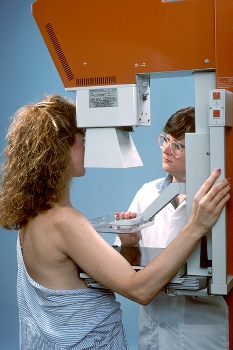The study, which was commissioned by Breast Cancer Network Australia (BCNA), involved surveys with 2210 individuals from the BCNA national network as well as 159 health professionals working in the field.
The results of the study, which are published in the BCNA report 'Sexual wellbeing and breast cancer in Australia: Experiences of people with breast cancer and health professionals', indicate that, following breast cancer:
- 73% of the surveyed women felt less desirable.
- 51% felt unattractive.
- 44% felt uncomfortable exposing their body.
- 38% experienced a loss of self-confidence.
The women also experienced a number of physical effects including tiredness (in 71% of the respondents), vaginal dryness (63%) and hot flushes (51%).
Professor Jane Ussher, the lead researcher from the UWS School of Psychology, says it was these physical changes - followed by body image and physical attractiveness - that the women considered to be the most important personal issues in their post-cancer lives.
"This finding is significant as it goes a long way toward explaining the changes that women also experience within their sexual relationships - which are often described as the longest-lasting and most devastating consequences of breast cancer," says Professor Ussher.
As many of the surveyed women reported multiple factors that affect their sexual wellbeing, the study also helps to highlight the complexity of the physical, emotional and psychological issues that many women face following a diagnosis and treatment of breast cancer.
The BCNA report also provides an insight into the impacts of cancer on women's sexual wellbeing, reporting that:
- 60% of the surveyed women experienced decreases in intimacy.
- 78% experienced decreases in the frequency of sex.
- 74% experienced decreases in sexual arousal.
- 71% experienced decreased interest in sex.
For the women in sexual relationships, 82% reported that breast cancer had affected their sexual relationship with 24% saying it was affected "dramatically".
In the majority of cases these consequences were negative, yet 5% of the women reported relationship improvement and improved partner support or communication which helped to alleviate their distress or concerns.
For the single women, their feelings about body image and physical appearance (77%), as well as their lack of confidence (66.5%), were identified as the issues that most frequently affected their ability to enter into a new relationship.
Professor Ussher says there is a need for health professionals to raise and discuss sexual issues with patients.
"98.6% of the health professionals surveyed considered 'body image and physical attractiveness' to be the most important change to sexual wellbeing after breast cancer," says Professor Ussher.
"Also this indicates that the majority of health professionals consider sexual wellbeing to be an important issue for women with breast cancer, however less than a third of the health professionals involved in the study reported 'always' addressing the issue."
68% of women said that they would like to receive information about breast cancer and sexual well-being, but only 41% had received such information and only 36% had discussed sexual well-being with a health professional.
This important research has informed the development of a comprehensive new resource by BCNA, titled 'Breast Cancer and Sexual Wellbeing'. The booklet, which will be available at www.bcna.org.au from the end of September 2011, suggests strategies for a range of physical, emotional and practical issues women may experience after breast cancer.
The research protocol was reviewed and approved by the UWS Human Ethics Research Committee.
























